#humane society of the united states
Note
Can you elaborate the story of the ”Free Willy” orca (forgot his name). From my understanding the orca couldn’t survive in the wild and imprinted on hunans to the point that he seeked out human compaionship
Oh Keiko. His is a sad story. In 1979, he was tragically captured from his native Icelandic waters as a calf and, after bouncing around for several years, was sold to an amusement park in Mexico City that would eventually become Six Flags Mexico. It was here that he found fame as the star of Free Willy, a very sweet and very fictional story (a favorite of mine as a child!) that later spawned a trilogy, all while convincing the public that it’s easy to free a whale.

The tank you see in the movie is the same tank Keiko lived in during his time in Mexico. Intended to house dolphins, it was incredibly undersized, and the water was far too warm for an orca. Worst of all, he was isolated from others of his kind, with only the companionship of his human caregivers and a few bottlenose dolphins. The years of poor husbandry took their toll on poor Keiko, and he was lethargic and in ill health when his story because known throughout the world.
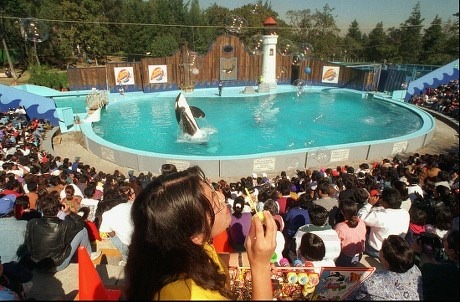
Although many parties were involved in what happened next, Warner Bros. studios (the filmmakers behind Free Willy) and the Humane Society of the United States (HSUS, my beloathed) were at the forefront. Once it became public knowledge that the real Willy was not, in fact, returned to the wild to live with his family and was still living in that too-tiny pool, many of Keiko’s fans (mainly children) began writing letters asking for their favorite cetacean movie star to be released.

Doesn’t that warm your heart? *she says sarcastically*
Some time—and an incident in which Michael Jackson (yes, that Michael Jackson) tried to purchase the whale for his personal collection—later, Keiko’s owners relented. It was decided by the newly formed Free Willy-Keiko Foundation, founded by Warner Bros. and cell phone mogul Craig McCaw (and still in operation to this day, unfortunately), that it was time to make fantasy a reality and set Keiko free. In 1996, Keiko was transferred to the Oregon Coast Aquarium for rehabilitation, where he would spend two years.

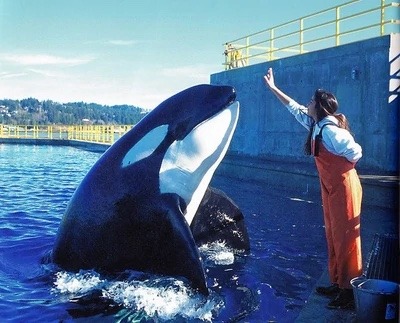
Under the quality husbandry and veterinary care Keiko received in Oregon, his health began to improve. In my opinion, this beautiful habitat, with trainers who loved and cared for him, should’ve been his forever home. One would think this was the plan all along, considering his trainers were still doing waterwork with him. That doesn’t exactly scream “this animal is a candidate for release!”

But the HSUS and Free Willy-Keiko Foundation had promised the children of the world that Keiko would return to the wild. Think of the children, people.
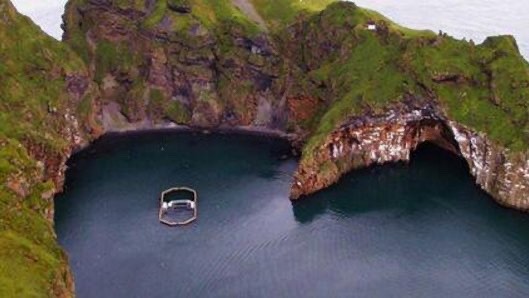
In 1998, Keiko tasted the crisp saltwater of the Icelandic seas for the first time in nearly two decades. For the next four or so years, Keiko lived in a sea pen, with the intentions of gradually habituating him back to his native environment. Over time, his trainers took him on longer and longer “walks” in the open ocean. One day in 2002, the walk didn’t end.
Keiko was free.
15 months later, he was dead.
The cause of death was pneumonia, the most common disease of cetaceans both in the wild and in human care. He was 27 years old (average life expectancy of a male orca is about 30 years).
Perhaps it would’ve been worth it, had Keiko spent those last 15 months with his long-lost family. But he didn’t. Though he was occasionally observed trailing pods of orcas, Keiko never rejoined a wild pod. Instead, he spent those 15 months traveling the coasts of Iceland and Norway seeking out the only family he knew. Humans.
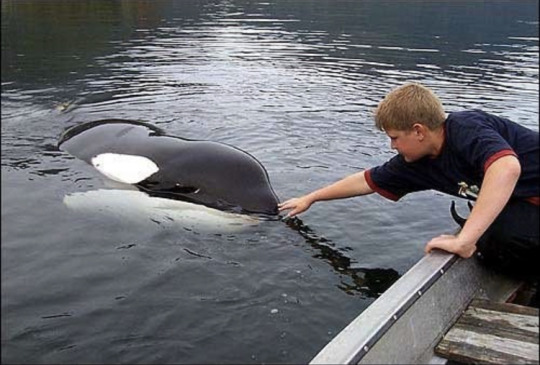
Keiko would approach swimming children, allowing them to ride on his back as he had with his trainers over the years. He would follow boats in search of food and companionship, as his caregivers had interacted with him from boats during his ocean walks. These escapades became so frequent that the local government passed ordinances to stop its citizens from interacting with the whale. Although the HSUS claimed otherwise, Keiko was never again a truly wild whale. He was a whale dependent on humans, humans who ignored the advice of experts and tried to bring fiction to life. In 2009, the journal Marine Mammal Science did a retrospective review of Keiko’s rehabilitation and release. They determined it was a failure.
Despite this, Keiko remains a poster child for anti-zoo activists. The still-hypothetical Whale Sanctuary Project (my even more beloathed) uses Keiko as an example of why their experiment is a good idea, tugging at heartstrings of well-meaning animal lovers like HSUS did all those years ago.
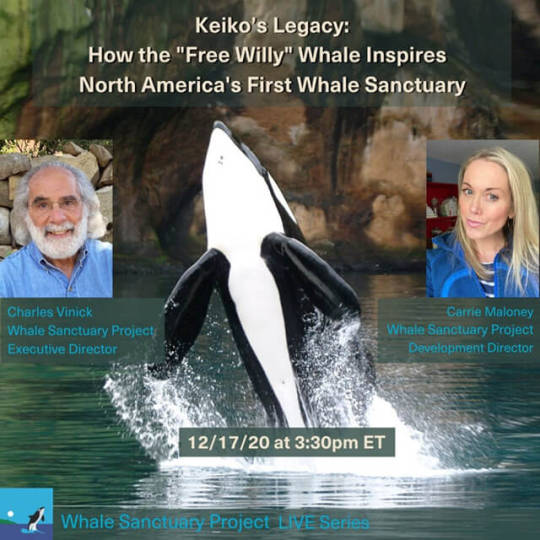
In reality, Keiko was quite possibly the worst candidate imaginable for release. He was a fully mature male, with a history of poor health, who had spent decades in the care of humans with absolutely no contact with others of his kind since he was basically a toddler. The decision to release him was made entirely on emotion and carried out by movie executives and animal rights activists. For further insight into the political and financial woes of the release, I highly recommend Killing Keiko by Mark Simmons, one of Keiko’s caregivers throughout the rehabilitation process.
RIP Keiko. You were a beautiful, sweet man who inspired millions 🐳
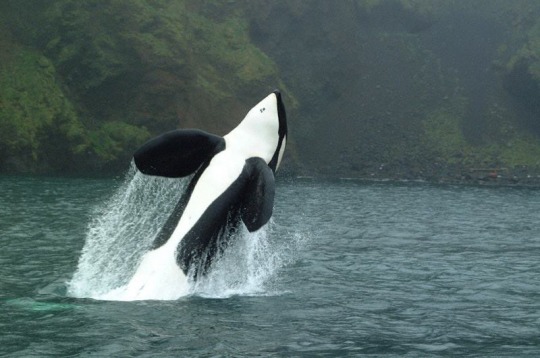
#keiko#free willy#orcas#killer whales#cetaceans#marine mammals#killing keiko#humane society of the united states#whale sanctuary project#answered asks
9K notes
·
View notes
Text
getting real sick of the humane society of the US or whatever it's called trying to guilt me for donations when they get like millions and millions and almost half of it goes towards them trying to make more money via social media and ads. showing me a video of a street cat in a cage shameful when you contribute almost nothing to local shelters who do have to take care of these guys.

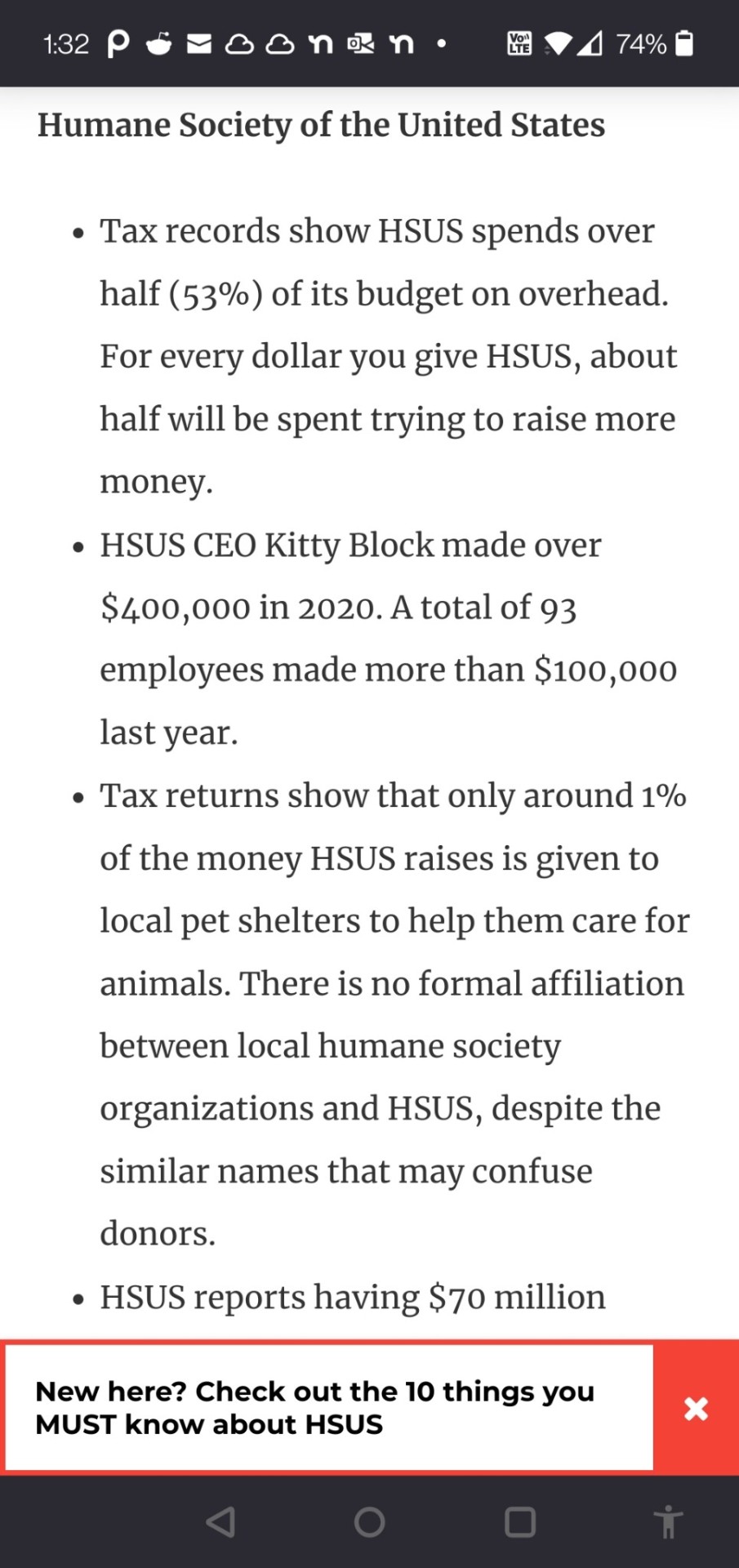
0 notes
Text
Canada has officially banned testing cosmetics on animals
CNN
—
Canada has moved to ban the testing of cosmetics on animals, joining a number of other countries and American states to outlaw the practice.
The Canadian government announced the decision in a Tuesday news release. Bill C-47 amends the Food and Drugs Act to ban both the testing of cosmetic products on animals and the sale of products relying on animal testing data, according to the news…

View On WordPress
#animal experiments#animal rights#animals#animals and society#beauty and personal care#brand safety-nsf drugs negative#brand safety-nsf sensitive#business#business and industry sectors#Canada#consumer products#continents and regions#cosmetics and toiletries#domestic alerts#domestic-health and science#domestic-international news#economy and trade#experimentation and research#humane society of the united states#iab-beauty#iab-business and finance#iab-industries#iab-makeup and accessories#iab-non-profit organizations#iab-personal care#iab-science#iab-style & fashion#international alerts#international-health and science#life forms
0 notes
Photo
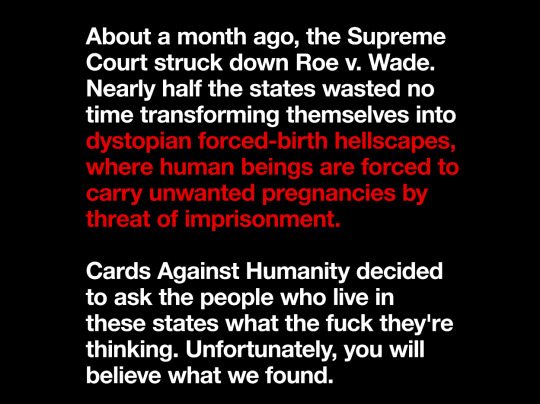
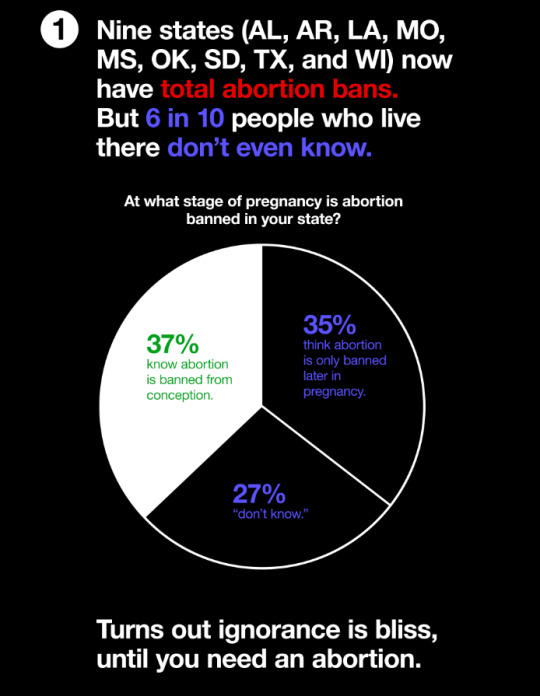
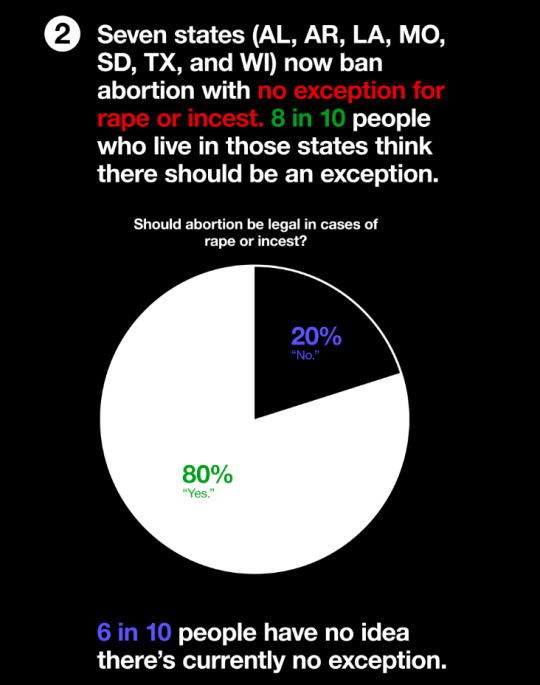



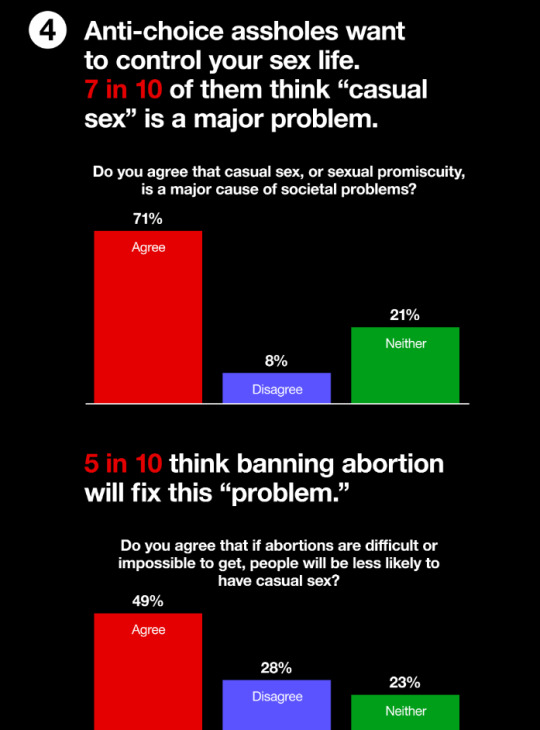


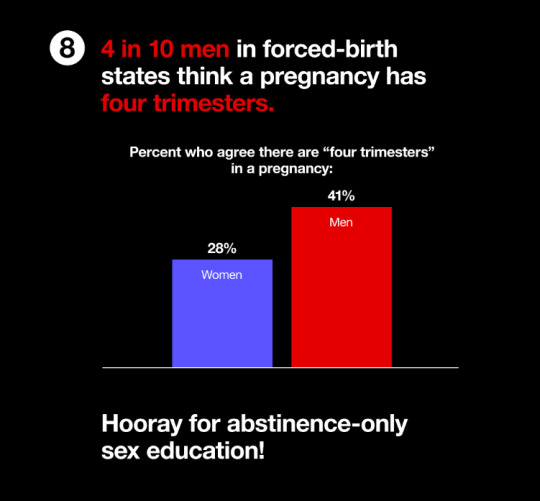
source
#you can read the full results in the link above#cards against humanity#abortion rights#forced birth#human rights#equality#nsnv#high contrast image#us politics#roe v wade#supreme court#united states#dystopian society#abortion#pro choice#ectopic pregnancy#anti choice
1K notes
·
View notes
Photo
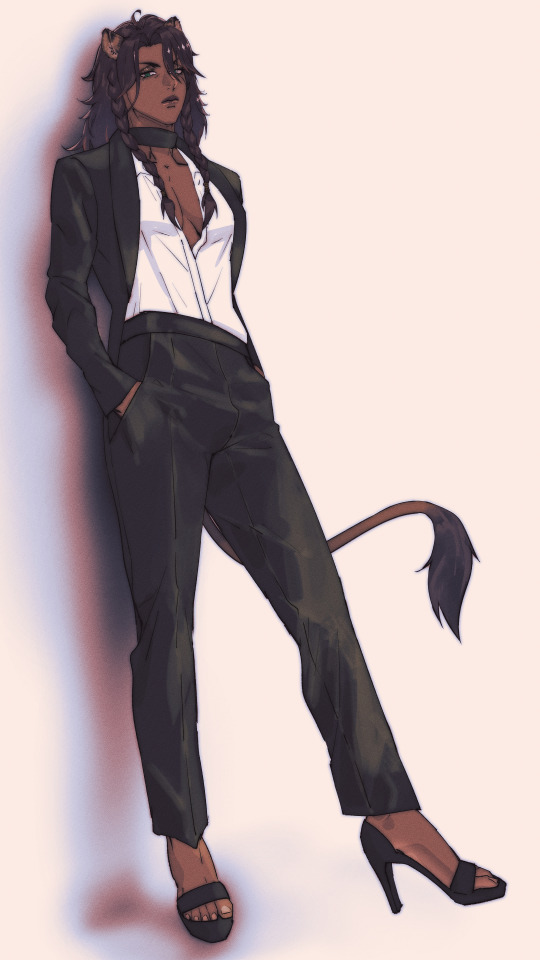
leona in leona lewis outfits part 2
#leona kingscholar#twst#twisted wonderland#leona in leona lewis outfits#thats it thats the concept#heels dress pants half open shirt neck scarf blazer#Leona Lewis attends The Humane Society of the United States' To The Rescue Gala#twitter crosspost#all based on actual outfits worn by singer leona lewis
659 notes
·
View notes
Text

#hmm#news#2024 us presidential election#texas#the united states is a failed state and a failed society#human rights#us border
7 notes
·
View notes
Text
As a mentally ill person that wants to interact with society, I have to work my hardest all the time to seem safe, functional, and useful. Really wish society would do the fucking same.
#united states#united states politics#mental health#mental health in the apocalypse#society#poverty#inequality#bodily autonomy#human rights#reproductive rights#civil rights
2 notes
·
View notes
Text
Sometimes I think about how when I was a little kid, I got an advertisement in the mail from HSUS asking people to write their state congresspeople about banning horse slaughter in the United States. Had a beautiful picture of a horse running wild and free on the envelope and provided a template to follow.
Little me wrote my representative, and I even got a response assuring me that they would support the bill. It ended up passing, and yay we saved the horsies!
Then I grew up and got a job in vet medicine, and was told by an experienced equine vet how because of that bill, horses whose owners either can’t or won’t have them euthanized will be sold to slaughter operations in Canada or Mexico, necessitating them to be transported sometimes hundreds of miles by trailer instead of being granted a swift, merciful death—which they often desperately need. One they would have if humane slaughter of horses was still legal in the United States.
So when I think about the HSUS backing the SWIMS Act, I get scared. Because somewhere out there, there’s going to be a sweet little kid who just loves animals writing their representative, asking them to save the whales. Without realizing they’re only making things worse.
#not saying they only supported the bill because of me btw… they were already going to vote for it#swims act#humane society of the united states#animal welfare
110 notes
·
View notes
Text
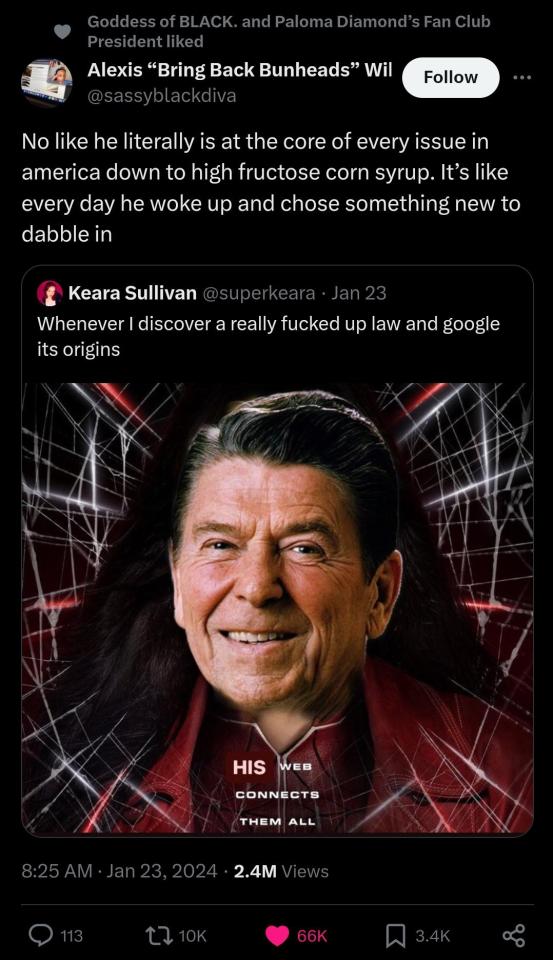
the funny thing is that i don't think younger people - and i mean those under the age of 40 - really have a grasp on how many of today's issues can be tied back to a disastrous reagan policy:
war on drugs: reagan's aggressive escalation of the war on drugs was a catastrophic policy, primarily targeting minority communities and fueling mass incarceration. the crusade against drugs was more about controlling the Black, Latino and Native communities than addressing the actual problems of drug abuse, leading to a legacy of broken families and systemic racism within the criminal justice system.
deregulation and economic policies: reaganomics was an absolute disaster for the working class. reagan's policies of aggressive tax cuts for the rich, deregulation, and slashing social programs were nothing less than class warfare, deepening income inequality and entrenching corporate greed. these types of policies were a clear message that reagan's america was only for the wealthy elite and a loud "fuck you" to working americans.
environmental policies: despite his reputation being whitewashed thanks to the recovery of the ozone layer, reagan's environmental record was an unmitigated disaster. his administration gutted critical environmental protections and institutions like the EPA, turning a blind eye to pollution and corporate exploitation of natural resources. this blatant disregard for the planet was a clear sign of prioritizing short-term corporate profits over the future of the environment.
AIDS crisis: reagan's gross neglect of the aids crisis was nothing short of criminal and this doesn't even begin to touch on his wife's involvement. his administration's indifference to the plight of the lgbtq+ community during this devastating epidemic revealed a deep-seated bigotry and a complete failure of moral leadership.
mental health: reagan's dismantling of mental health institutions under the guise of 'reform' led directly to a surge in homelessness and a lack of support for those with mental health issues. his policies were cruel and inhumane and showed a personality-defining callous disregard for the most vulnerable in society.
labor and unions: reagan's attack on labor unions, exemplified by his handling of the patco strike, was a blatant assault on workers' rights. his actions emboldened corporations to suppress union activities, leading to a significant erosion of workers' power and rights in the workplace. he was colloquially known as "Ronnie the Union Buster Reagan"
foreign policy and military interventions: reagan's foreign policy, particularly in latin america, was imperialist and ruthless. his administration's support for dictatorships and right-wing death squads under the guise of fighting "communism" showed a complete disregard for human rights and self-determination of other nations.
public health: yes, reagan's agricultural policies actually facilitated the rise of high fructose corn syrup, once again prioritizing corporate profits over public health. this shift in the food industry has had lasting negative impacts on health, contributing to the obesity epidemic and other health issues.
privatization: reagan's push for privatization was a systematic dismantling of public services, transferring wealth and power to private corporations and further eroding the public's access to essential services.
education policies: his approach to education was more of an attack on public education than anything else, gutting funding and promoting policies that undermined equal access to quality education. this was, again, part of a broader agenda to maintain a status quo where the privileged remain in power.
this is just what i could come up with in a relatively short time and i did not even live under this man's presidency. the level at which ronald reagan has broken the united states truly can't be overstated.
76K notes
·
View notes
Text
We "Others"
‘Some Other Race’, or as I say, ‘Other’, is a growing demographic as I mentioned yesterday. Had I not been given as much resistance in discussion, I would have gone along thinking that
A Colorful History
The United States Constitution (Article I, Section 2) established representation in the U.S. House of Representatives was based on population determined by census. It’s a very interesting read…

View On WordPress
0 notes
Text
What Does ANTIFA Mean? Why Should We Care?
This is what the United States really looks like, United Humanity, not only white Americans.
“ANTIFA” is a philosophy, not a group of people. It means “Anti Fascist.”
What does is mean to be a Fascist?
Fascism means:
a form of extreme-right authoritarianism
ultra nationalism
characterized by dictatorial power
forceable suppression of opposition
strong regimentation of society and the…

View On WordPress
#Anti Fascist#Antifa#authoritarian#authoritarianism#citizens#Constitution#Constitution of the United States of America#democracy#dictatorial#disctatorialpower#economy#fascist#Free Will#freedom#global warming climate change#human rights#immigration#liberty#nationalism#news#opposition#power#Preamble#right-wing#rights and priviliages#society#strong. regimentation#supporession#trafficking#truth in lending
0 notes
Text
PLEASE SIGN AND SHARE IF YOU AGREE 🙏🏻🏆🙏🏻
💫💫💫
#women’s rights#human rights#children’s rights#unborn babies rights#abortions#freedoom#justice#depopulation agenda#deep state’s plan do destroy the family union#stop the genocide#love life#love children#mothers and fathers#queer agenda is destroying humanity#division#hatred#weakening society#be united#stand up for what’s right not for what’s socially accepted and politically correct#stand for truth#save the children#without mother’s and fathers it will be the end of humanity#speak up#standup#crimes against humanity#dirty politics#fight for justice#these people are evil#truth#wwg1wga
0 notes
Text
In 1950, in the United States, a corps of enthusiasts formed the American Society of Human Genetics, and in 1954 they established the American Journal of Human Genetics.
"In the Name of Eugenics: Genetics and the Uses of Human Heredity" - Daniel J. Kevles
#book quotes#in the name of eugenics#daniel j kevles#nonfiction#50s#1950s#20th century#united states#enthusiasts#american society of human genetics#american journal of human genetics
1 note
·
View note
Text
News from Green Bay, as noted by a coworker:
"UW-Green Bay notifies employees of potential discontinuations of majors, minors" from Fox 11 News.
"With nearly 100 majors, minors and areas of emphasis, UW-Green Bay has a wide variety of programs for students to explore and study -- but the University could soon be eliminating some of them.
Those majors include Economics, Environmental Policy & Planning and Theatre & Dance.
'Of course we're always going to have theatre at UW-Green Bay and our goal would be to make sure that as many students as possible across the university are engaged in theatre, or in the arts, or in any, or economics,' said Michael Alexander, UW-Green Bay's chancellor. 'Of course we're going to teach economics. Of course we're going to teach these other things. It's a question of whether we need a major.'
'We're not cutting...We're only talking about how to evolve those programs.'"
"...evolve those programs." I hate business-speak.
Full story
0 notes
Text
🙏🏼PLEASE DONATE ANY AMOUNT & SHARE🙏🏼
0 notes